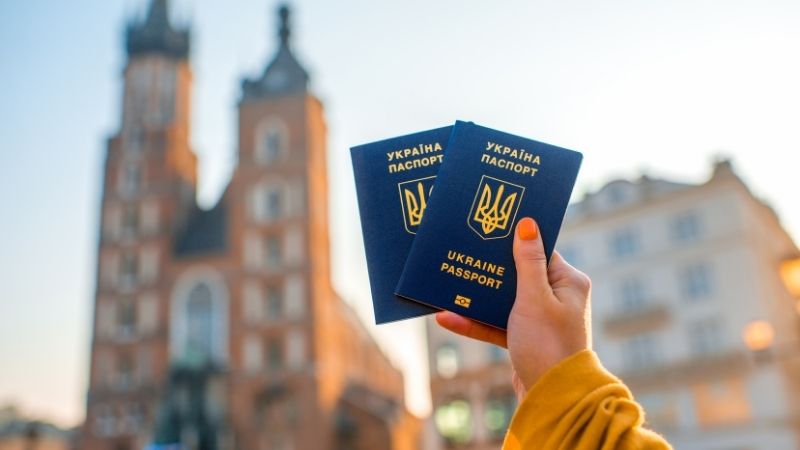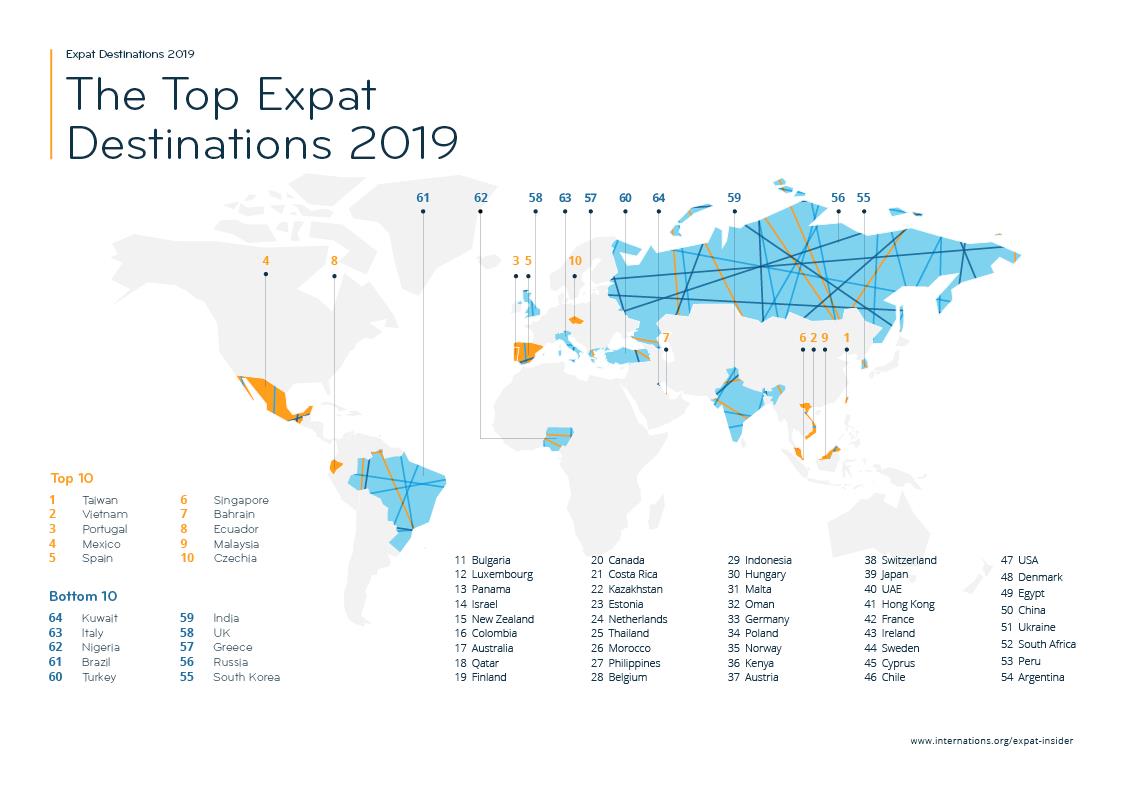
In today's globalized world, expatriates face numerous challenges when it comes to healthcare. From securing the right health insurance to accessing specialized medical services, navigating the unfamiliar healthcare systems can be daunting.
In this article, we will explore 10 essential healthcare aspects that expats should consider, ranging from health insurance to pediatric services.
By understanding these key essentials, expats can ensure they have access to comprehensive and quality healthcare, providing them with peace of mind in their new home.
Health Insurance
Expat healthcare requires adequate health insurance coverage to ensure access to quality medical services. When living abroad, it is crucial for expats to have comprehensive health insurance that provides coverage options tailored to their specific needs. Accessibility to healthcare services can vary greatly from one country to another, and having the right insurance coverage can help expats navigate the local healthcare system with ease.
The first step in obtaining health insurance as an expat is to research and compare different coverage options. Expats should consider factors such as coverage for routine check-ups, emergency medical care, hospitalization, and prescription medications. It is important to choose a plan that provides sufficient coverage for both routine and unexpected medical expenses.
Additionally, expats should ensure that their health insurance plan offers a wide network of healthcare providers, hospitals, and specialists. This will ensure that they have access to quality medical services wherever they are located. Some insurance plans may also offer additional benefits such as access to telemedicine services, which can be convenient for expats living in remote areas.
Local Hospitals
Access to local hospitals is a crucial aspect of expat healthcare, ensuring that expats have convenient and reliable medical facilities nearby. When living abroad, it is essential to have access to emergency services and quality healthcare.

Local hospitals play a vital role in meeting these needs, providing a range of medical services and treatments. These hospitals are equipped with state-of-the-art facilities and staffed by highly trained medical professionals. Whether it's a minor illness or a serious medical emergency, expats can rely on local hospitals to provide immediate and efficient care.
Additionally, local hospitals often have specialized departments, such as pediatrics or maternity, catering to the specific needs of expat families. Having local hospitals accessible gives expats peace of mind, knowing that healthcare services are readily available whenever they are needed.
Emergency Services
When living abroad, access to emergency care is a crucial aspect of expat healthcare. It is important for expats to have knowledge of the availability of emergency services in their new location.
This includes understanding the accessibility of emergency rooms, ambulance services, and the quality of emergency care provided.
Access to Emergency Care
The availability and quality of emergency care services are crucial considerations for expatriates when seeking healthcare abroad. Access to emergency care can vary significantly from country to country, and expats need to be aware of the options available to them in case of an emergency.
One important factor to consider is the emergency room wait times. In some countries, long wait times are common, which can be frustrating and potentially life-threatening in urgent situations. It is essential to research the average wait times at local hospitals or clinics to ensure prompt access to emergency care.
Another consideration is the availability of emergency care for non-urgent conditions. Expats may require immediate medical attention for conditions that are not life-threatening but still require urgent treatment. Understanding whether emergency care facilities accept non-urgent cases can help expats make informed decisions about where to seek medical assistance.

Emergency Service Availability
Emergency service availability is a crucial consideration for expatriates seeking healthcare abroad. When living in a foreign country, it is essential to have access to emergency services that can provide timely and reliable care in case of unforeseen medical emergencies.
One important aspect to consider is the emergency service response time, which refers to the time it takes for emergency personnel to arrive at the scene. In some countries, the response time may be significantly longer compared to others, which can impact the outcome of critical situations.
Another factor to consider is the emergency service coverage, which refers to the range of services provided by emergency facilities. It is important to ensure that the emergency services available in the host country can meet the needs of expatriates and provide high-quality care in emergency situations.
Medical Checkups
Regular medical checkups are vital for expatriates to maintain their health and well-being. These checkups offer a range of benefits, including the early detection and prevention of potential health issues. By incorporating preventive healthcare measures, expats can take proactive steps to ensure their long-term health and reduce the risk of developing serious conditions.
Here are three key reasons why medical checkups are essential for expatriates:
Early Detection: Regular checkups allow healthcare professionals to identify any health concerns at an early stage. This enables prompt intervention and treatment, minimizing the impact on expatriates' overall health.
Preventive Measures: Medical checkups provide an opportunity for expats to discuss their lifestyle, diet, and habits with a healthcare provider. Through counseling and guidance, expatriates can adopt preventive measures to maintain a healthy lifestyle and avoid potential health risks.

Peace of Mind: Regular checkups offer expatriates peace of mind, knowing that they are taking proactive steps to monitor their health. This can alleviate anxiety and promote overall well-being, allowing expats to focus on enjoying their freedom and new experiences abroad.
Prescription Medication
When it comes to prescription medication for expats, there are a few key points to consider.
First, the choice between generic and brand-name drugs can impact both access and affordability. Understanding the differences and potential cost savings is essential.
Additionally, expats should be aware of the availability and accessibility of certain medications in their new country of residence, as this can vary significantly.
Generic Vs. Brand-Name
How can expats navigate the choice between generic and brand-name prescription medication?
When it comes to choosing between generic and brand-name prescription medication, expats should consider the following:
Cost: Generic medications are usually cheaper than brand-name ones. This can be particularly beneficial for expats who are paying out-of-pocket for their healthcare expenses.

Effectiveness: Both generic and brand-name medications contain the same active ingredients and must meet the same safety and quality standards. Therefore, they are equally effective in treating the same conditions.
Availability: In some cases, brand-name medications may be the only option available, especially for certain specialized treatments. Expats should check with their healthcare provider or pharmacy to ensure the availability of both options.
Ultimately, expats should consult with their healthcare provider to determine the most suitable option for their specific healthcare needs and budget. It is important to note that the choice between generic and brand-name medication may vary depending on the individual and the specific medication in question.
Access and Affordability
To ensure access and affordability of prescription medication, expats should explore options for coverage through their health insurance plans.
Access to prescription medication can present challenges for expats living abroad, particularly in countries with different healthcare systems and regulations. Expats may encounter difficulties in obtaining certain medications due to limited availability or restrictions imposed by local authorities. Additionally, cost barriers can also be a concern, as medication prices can vary significantly between countries.
Some health insurance plans offer coverage for prescription medications, which can help alleviate access challenges and reduce cost barriers. Expats should carefully review their insurance policies to determine the extent of coverage for prescription medication and whether any restrictions or limitations apply.
It is also advisable to consult with healthcare professionals or insurance providers to explore alternative options and ensure that necessary medications are accessible and affordable.

Dental Care
Dental care is an essential component of expat healthcare. Maintaining good oral health is important for overall well-being, and expats should prioritize regular dental check-ups and treatments.
Here are three key aspects of dental care for expats to consider:
Preventive treatments: Regular dental cleanings, fluoride treatments, and dental sealants can help prevent tooth decay and gum disease. Expats should ensure they have access to a dental professional who can provide these preventive treatments.
Orthodontic care: Many expats, especially children and teenagers, may require orthodontic treatment to correct misaligned teeth or jaw abnormalities. It is important for expats to have access to orthodontic specialists who can provide necessary treatments such as braces or aligners.
Emergency dental care: Accidents or sudden dental problems can occur at any time. Expats should have access to emergency dental services, including treatment for toothaches, broken teeth, or dental trauma.
Mental Health Support
Mental health support is a vital aspect of expat healthcare. As an expatriate, it is crucial to prioritize your mental well-being and be aware of the available therapy options.
Mental health awareness is gaining recognition globally, and many countries now offer comprehensive mental health services to their residents, including expatriates. When seeking mental health support as an expat, it is essential to understand the therapy options available in your host country.

These options may include individual therapy, group therapy, cognitive-behavioral therapy, and counseling services. It is advisable to research and consult with professionals to determine the most suitable therapy option for your specific needs.
Specialist Services
Expatriates often require access to specialized medical services while living abroad. Whether it's a referral to a specialist or the need for pediatric vaccinations, expats need to ensure they have access to the necessary healthcare services for themselves and their families.
Here are three important aspects of specialist services for expatriates:
Specialist Referrals: When faced with a complex medical condition or in need of specific expertise, expats often rely on specialist referrals. It is crucial for expats to have access to a network of trusted specialists who can provide the necessary care and treatment.
Pediatric Vaccinations: As parents, expats need to ensure their children are up to date with their vaccinations. It is important to have access to pediatric services that offer a comprehensive range of vaccinations to protect against various diseases.
Timely Appointments: Expats often require prompt appointments to address their medical concerns. Having access to specialist services that prioritize timely appointments can make a significant difference in ensuring timely diagnosis and treatment.
Having access to specialist services is essential for expatriates to receive the appropriate care and treatment they need while living abroad.

Maternal Care
When living abroad as an expat, it is important to have access to quality maternal care. This includes regular prenatal check-ups to ensure the health and well-being of both the mother and baby. Expats should also explore their maternity coverage options, whether through private health insurance or the local healthcare system.
Additionally, postpartum care services are essential for the mother's recovery and the newborn's development.
Prenatal Check-Ups Abroad
Prenatal check-ups abroad are an essential aspect of maternity care for expatriates. These check-ups ensure the health and well-being of both the mother and the developing baby. Here are three key components of prenatal care for expats:
Prenatal Nutrition: Proper nutrition is crucial during pregnancy to support the baby's growth and development. Expatriates should consult with healthcare professionals to ensure they are getting the necessary nutrients through a balanced diet or supplements.
Prenatal Exercise: Regular exercise during pregnancy can help improve maternal health and prepare the body for childbirth. Expats should seek guidance from healthcare providers on safe and suitable exercises that can be done abroad.
Regular Check-ups: Regular prenatal check-ups are vital for monitoring the baby's growth, checking for any potential complications, and providing appropriate medical interventions if necessary. Expats should find a trusted healthcare provider abroad who specializes in prenatal care and schedule regular visits throughout their pregnancy.
Maternity Coverage Options
Expats should consider their options for maternity coverage to ensure comprehensive maternal care during their time abroad. Maternity coverage options vary depending on the country of residence and the type of health insurance plan chosen.

It is crucial for expat parents-to-be to review their insurance policies carefully to understand the extent of coverage for prenatal care, delivery, and postnatal care. Some insurance plans may cover routine prenatal check-ups, ultrasound scans, and laboratory tests, while others may also provide coverage for childbirth classes and breastfeeding support.
Additionally, it is important for expats to be aware of the maternity leave options available in their host country. Understanding the duration and benefits of maternity leave can help expat mothers plan their time off work and ensure a smooth transition into motherhood.
Postpartum Care Services
Postpartum care services are an essential aspect of maternal care for expatriates residing abroad. After giving birth, it is crucial for new mothers to receive proper postnatal care to ensure their postpartum recovery and overall well-being.
Here are three important postpartum care services that expatriates should consider:
Postpartum check-ups: Regular visits to a healthcare provider are essential to monitor the mother's physical and emotional recovery. These check-ups can help identify any potential complications and provide necessary guidance and support.
Lactation support: Breastfeeding is a crucial part of newborn care. Lactation consultants can provide guidance and support to new mothers, helping them establish and maintain successful breastfeeding.
Emotional support: The postpartum period can be emotionally challenging for many women. Access to mental health professionals who specialize in postpartum care can be invaluable in providing support and guidance during this time.

Pediatric Services
Accessing high-quality healthcare for children is essential for expatriates living abroad. When it comes to pediatric services, expat parents need to ensure that their children receive necessary vaccinations and dental care.
Pediatric vaccinations are crucial for protecting children from various diseases, and expatriates should be aware of the recommended vaccination schedule in their host country. It is important to consult with healthcare professionals to ensure that children receive the appropriate vaccines at the right time.
Additionally, pediatric dental care is essential for maintaining children's oral health. Regular dental check-ups, cleanings, and treatments are necessary to prevent dental issues and promote good oral hygiene. Expatriates should seek out reputable pediatric dentists who can provide comprehensive dental care for their children while living abroad.
Frequently Asked Questions
How Can Expats Find Affordable Health Insurance Options in Their Host Country?
Finding expat-friendly insurance providers requires comparing the cost and coverage of local options. It is essential to consider the specific healthcare needs, budget, and level of coverage desired to ensure affordable and comprehensive health insurance in the host country.
Are There Any Local Hospitals That Cater Specifically to Expats or Have English-Speaking Staff?
Local hospitals that cater specifically to expats or have English-speaking staff are essential for expats living abroad. These hospitals provide expat-specific healthcare services, ensuring that expats have access to affordable health insurance options, medical emergency support, recommended medical checkups, and easy access to prescription medication in their host country.
What Should Expats Do in Case of a Medical Emergency While Living Abroad?
In case of a medical emergency while living abroad, expats should be prepared by researching local healthcare resources and understanding the language barrier challenges they may face in foreign hospitals.
Are There Any Recommended Medical Checkups or Screenings That Expats Should Undergo Regularly?
Regular medical checkups and screenings are recommended for expats to ensure their ongoing health and wellbeing. These routine examinations can help detect any potential health issues early on, allowing for timely interventions and prevention of more serious conditions.

Can Expats Easily Access Prescription Medication in Their Host Country, and What Is the Process for Obtaining It?
Accessing medication in a host country can be a straightforward process for expats. They should consult with local healthcare providers who can guide them through the prescription process, ensuring they receive the necessary medications in a timely manner.
 Liveaboard LifestyleTravel DestinationsExPat Places to LiveRV LifeDigital Nomad TravelPrivacy PolicyTerms And Conditions
Liveaboard LifestyleTravel DestinationsExPat Places to LiveRV LifeDigital Nomad TravelPrivacy PolicyTerms And Conditions
